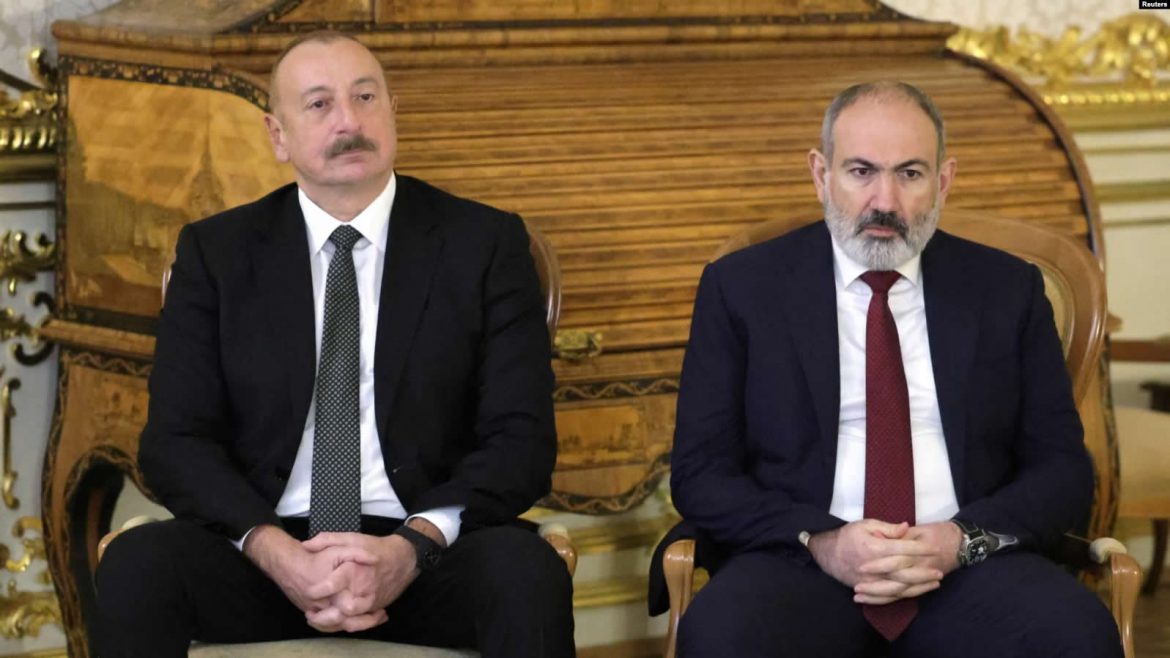Opposition leaders leveled accusations against Prime Minister Nikol Pashinyan on Tuesday, alleging his readiness to concede to Azerbaijan and Turkey following a proposal from one of his key political allies to alter Armenia’s national anthem and coat of arms.
Armenia’s current state symbols, including the national anthem “Mer Hayrenik” (Our Fatherland) and the coat of arms, trace their origins back to the short-lived Armenian republic of 1918-1920, with minor modifications made before their adoption by the post-Communist parliament in 1991.
In a Telegram post, parliament speaker Alen Simonian criticized “Mer Hayrenik” as “alien” and advocated for its replacement with a truly “Armenian” anthem reflective of the nation’s identity and musical heritage. He also derided the coat of arms, featuring a lion, an eagle, and Mount Ararat, along with symbols of ancient Armenian dynasties, questioning its relevance.
Last year, Prime Minister Pashinyan himself criticized the coat of arms, highlighting what he saw as a disconnect between historical Armenia and the present.
Reacting to Simonian’s remarks, Armenian opposition lawmakers accused Pashinyan’s government of capitulating to Ankara’s demands, alleging a plot to erase Armenia’s historical identity under Turkish influence. They asserted that Turkey and Azerbaijan aim to weaken Armenia by severing its ties to its millennia-old heritage.
Hrach Hakobian, a parliament member from Pashinyan’s ruling Civil Contract party, dismissed claims of coercion from Baku or Ankara, emphasizing the need for open debate on the issues raised by Simonian.
A spokesperson for Simonian clarified that his statements reflected personal views and not an official proposal, indicating that any changes to national symbols would require a referendum.
Simonian’s remarks coincided with Pashinyan’s calls for a new Armenian constitution reflecting the evolving geopolitical landscape. Critics speculate that Pashinyan seeks to remove references to Armenia’s 1989 declaration on Nagorno-Karabakh and the 1915 Armenian genocide from the current constitution, which has drawn objections from Azerbaijan during peace treaty negotiations.
While Foreign Minister Ararat Mirzoyan acknowledged Azerbaijani objections, he and Pashinyan’s allies denied any intention to alter the constitution under Azerbaijani pressure.
The Azerbaijani Foreign Ministry, on the other hand, accused Armenia of including elements in its constitution that undermine Azerbaijan’s territorial integrity and sovereignty, calling for their removal.
Arusyak Julhakian, another lawmaker from Pashinyan’s party, accused Baku of attempting to stoke political tensions in Armenia with such statements.




